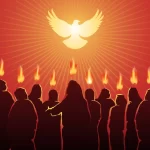The centre of any religion is the place of worship. Religion without a place of worship is dead. In the Old Testament, the centre of Judaism was the temple. In a pluralistic religious country like India, it is the same; the centre of Hinduism is the temple, for Islam is the Mosque. In the New Testament, the centre of Christianity is the church. Christians without a church do not have any identity. Christians and “church” are one. The New Testament clearly says that church is not a building; rather, the church is composed of believers in Christ. So, believers are the churchgoers, though all churchgoers are not necessarily believers.
The Greek word for church is ecclesia. In Mathew 16:18, ecclesia refers to the universal church; in the Epistles, ecclesia is used for the local church. Every believer who is part of the invisible universal church should be part of the visible local church. Originally ecclesia referred to an assembly of citizens in a Greek community. In the Bible, it refers to the assembly of the believing community, a congregation of people in one place for worship.
In Acts 2, the 120 people upon whom the Holy Spirit came had gathered in one place. That was the first church.
Can an online gathering be called ecclesia? During COVID-19 when the situation did not permit the believers to assemble in person, the new normal was to meet online. Believers came together on one platform, be it on Zoom or Google Meet, etc. But even after the pandemic subsided, many online gatherings are continuing. Though some may call the online gathering ecclesia in a relative sense, it cannot be called ecclesia in an absolute sense because it is far from meeting the criteria of the Biblical pattern of the local church congregation.
It is inappropriate for physical regular service to be completely replaced by an online service as many want due to their busy or lazy world. Those who were churchgoers earlier now find it comfortable to attend online service from home, not because it is as effective as the offline service, but because they are complacent with it. The online comfort zone must be broken. The new normal must be revisited. It was the new normal for the church in the relative sense, not in the absolute sense. In fact, the new normal was an interim normal. The believers assembling in one place/ under one roof is the absolute norm. Therefore, the church must come back to its basics now.
There is no “churchless Christianity”. Churchless Christianity is understood as secret Christianity. The secret Christians are those who believe/accept Christ but do not confess publicly for the fear of family or societal persecution. Such people are called “Christians outside the church”. But can a Christian be outside the church? Can the believers who join the universal church hold themselves back from the local church?
With the fear of losing something, they are not gaining anything. Joseph of Arimathea was the secret disciple of Jesus Christ, but in the crucial time came in public to bury the body of Jesus Christ. Nicodemus, who came to Jesus in the night for the fear of Jews, came in public to bury the body of Jesus Christ. So also, the secret Christians must join in public one day putting aside the fear factor, risking their lives for Jesus to be part of the local church. The secret Christians may remain in the same status without a church, but can the open Christians stop going to church for any reason?
The online church served its interim purpose; now let us be back to the local church which always remains the optimal worship setting.
We may ask this simple question, “Is it important to go to church?” It is essential for a devotee to go to the place of worship, be it a temple, mosque, or church. In the Old Testament, the male Jews had to go to the temple three times a year for worship during the feasts of Passover, Pentecost, and Tabernacle. In the New Testament, the Jews were part of synagogue worship. Jesus and Paul attended the synagogue. So, Christians also should go to church for corporate worship. In religion, we cannot be individualistic; we are part of a community, which is the local church.
In Acts 2, the 120 people upon whom the Holy Spirit came had gathered in one place. That was the first church. So church is the assembly of believers in one place. In 1 Corinthians 3:16 the church (i.e., believers) is referred to as the Holy of Holies, the sanctuary where the Holy Spirit dwells. So, it is in the church where we experience the vibrant presence of God. In 1 Corinthians 5:30 Paul writes about the church exercising discipline—even to the extent of expelling of a sinning brother from the church. If going to church was not important, then church discipline would not affect the individual believers.
Paul’s code of conduct for women and men regarding head covering (1 Cor 11:2–4) is related to the local church. The Lord’s Supper (1 Cor 11:17–34) was meant to be taken together; the early church gathered daily for the breaking of bread. Similarly, the principles for exercising spiritual gifts (1 Cor 12 & 14) were exclusively intended for the local church, the assembly of believers. Therefore, churchgoing is a biblical mandate.
For worship in any religion, the presence of the devotee at the place of worship is essential. There are pilgrimages where devotees must reach intended destinations in person. There are temples where Hindus must go for puja. There are mosques where the Muslims must go for worship. So also, there are churches where Christians should go for worship. It is mandatory, not an option. The online church served its interim purpose; now let us be back to the local church which always remains the optimal worship setting.






